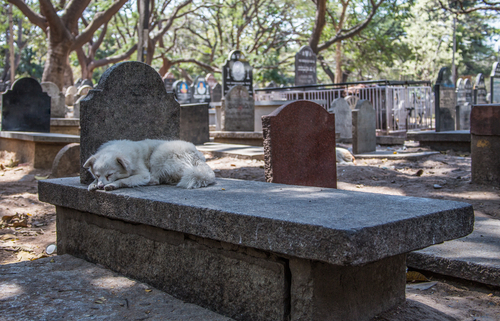Do Dogs Mourn?
Dog lovers believe that big “puppy” eyes that are gazing at them is a heartwarming gesture. Have you ever thought that those mournful eyes indicate that the dog is mourning? Dogs really do have emotions! It is hard to assess what those mournful eyes mean because our canine friends cannot tell us what they are feeling. Even though dogs do not verbalize that they are happy or sad, some pet owners interpret their pet’s emotions based on behavior.
A recent study concluded that common signs associated with morning include:
- Decrease in appetite (approximately 11% refused to eat at all)
- Sleeping more than usual or suffering insomnia
- Changing the area of the house where they slept
- Changes in vocal patterns, with some vocalizing more, while others were quieter than they were prior to their loss of companion
- Surviving dogs were more affectionate with their owners and became clingy
When a dog loses a companion (whether it be another pet or human), they grieve and react to the changes in their life. Dogs have a way of altering their behaviors when they mourn, much like humans do. They may show signs of depression which can lead to a decreased appetite and decline to play. Furthermore, you may discover that they are sleeping more than usual and moving more slowly.
When signs of grief become evident following the loss of an animal or family member, concerned owners can help their dogs deal with grief. Consider spending extra time with your four-legged friend. Be more affectionate and make it a point to pet your dog more often. Always reinforce good behavior and ignore inappropriate behavior. Some dogs who are in mourning will howl. Although this is hard to do, try to ignore the behavior. Finally, you should think carefully about replacing a lost pet. If your dog’s grief is due to the loss of a canine companion, do not rush to find a replacement. Give your dog time to grieve and adjust to the loss. Adding a new dog into the mix will only provide more stress to everyone.



